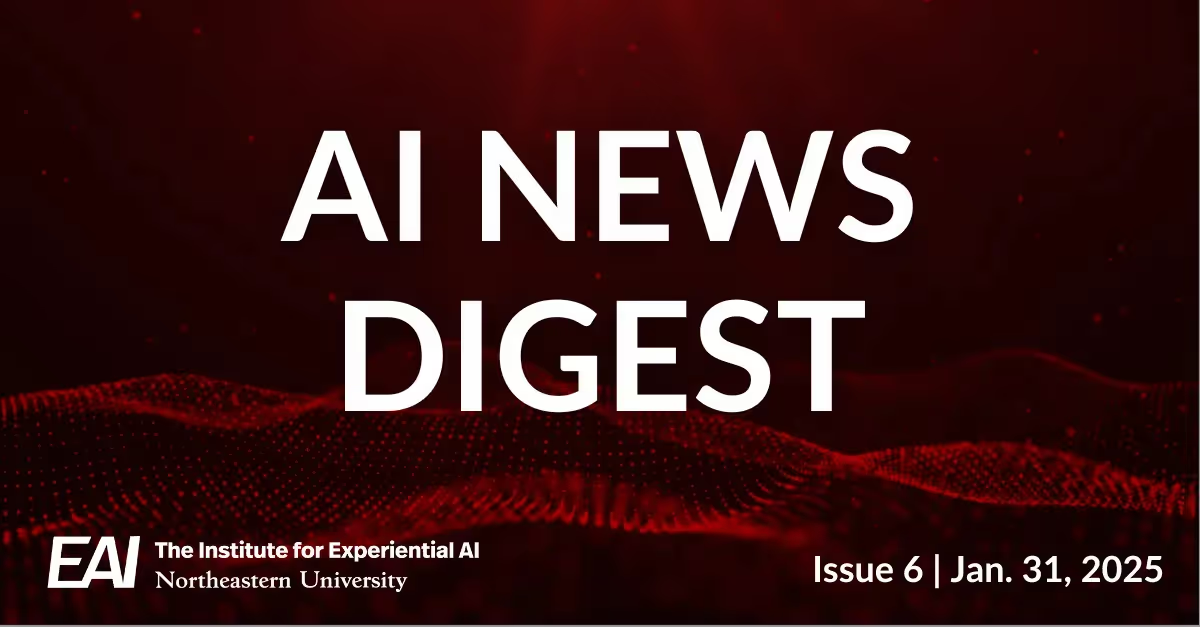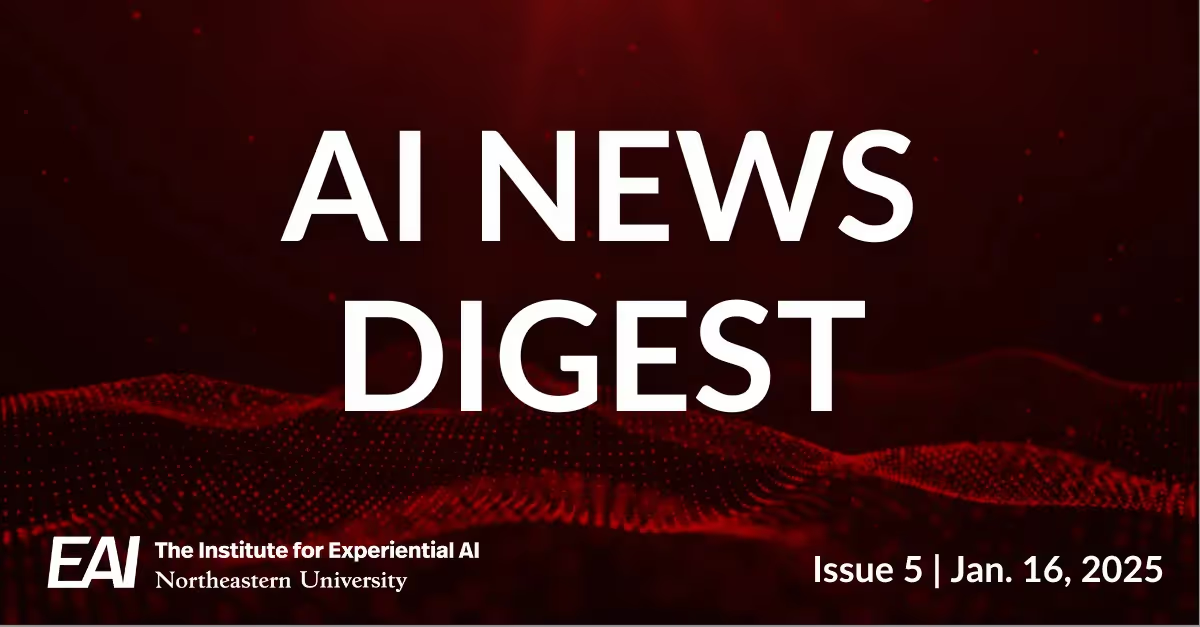AI News Digest: Nov. 21, 2024
.avif)
Welcome to the AI News Digest, your biweekly roundup of essential news and breakthroughs in artificial intelligence. Curated by Northeastern University experts, this digest goes beyond the hype to deliver the insights you need to stay informed.
GOVERNMENT ⚖️
What Donald Trump’s win means for AI
With Donald Trump now back in office, Biden-administration groups and legislation may be down the path of repeal, as Trump hopes to allow AI to have more range in development by companies around the US.
Time
Anthropic teams up with Palantir, AWS to sell AI to defense customers
Anthropic and Palantir have partnered to integrate Claude AI models with Palantir’s software on AWS, aiming to support U.S. government intelligence and defense operations. This collaboration enhances the deployment of AI solutions for critical national security missions.
TechCrunch
AI RISK ⚠️
Meta’s plan for nuclear-powered AI data center thwarted by rare bees
Meta's plans for a nuclear-powered AI facility hit a setback after a rare species of bees were discovered at the proposed site, causing regulatory and environmental issues.
Financial Times
RESPONSIBLE AI 🌎
As artificial intelligence transforms gaming, Northeastern researchers urge industry to adopt Responsible AI practicesHighlights the need for responsible frameworks in AI-driven gaming. Northeastern experts urge developers to prioritize fairness, transparency, and player well-being to ensure responsible AI practices and avoid biases in the gaming experience.
Northeastern Global News
HEALTH 🔬
Robot that watched surgery videos performs with skill of human doctor
Johns Hopkins researchers trained robots by imitation with the guidance of surgery film, which resulted in the robots performing objectives like suturing with human-like abilities.
Johns Hopkins University
LIFE SCIENCES 🧬
PadChest-GR: A bilingual chest X-ray dataset for grounded radiology report generation
PadChest-GR sets a new standard for training and evaluating models in the field of radiology, based on over 4,500 studies including precise localization and detailed annotation for findings.
arXiv
A causal theory for studying the cause-and-effect relationships of genesMIT researchers have developed a new way to uncover how genes influence each other using only observational data, eliminating the need for costly experiments. By grouping related genes and mapping how they interact, this method makes it easier to identify gene targets for treating diseases. This approach holds promise for advancing personalized medicine, allowing for more precise and efficient treatment development.
MIT News
AI TECH DEVELOPMENTS 💻
How can you tell if text Is AI generated?
This article deals with the frequency of certain words that LLMs tend to generate. Each LLM has its own model and template for repeating specifics words, but the context of what they are writing answers for also heavily influences which templates take effect.
Northeastern Global News
Why OpenAI Is trying new strategies to deal with an AI development slowdown
To combat slow AI development, OpenAI has shifted its focus to refining its existing models, investing heavily into processes such as post-training optimization.
Inc.
OpenAI, others seek new path to smarter AI as current methods hit limitations AI companies, including OpenAI, are moving away from simply making models bigger and focusing on smarter ways for AI to "think," especially during tasks that need reasoning, like solving complex problems. This new approach could change the hardware AI systems rely on, creating more demand for efficient computing.
Reuters
Saudi Arabia to pour $100 billion into AI data centers, startups
With AI in the media all over the place, Saudi Arabia has made plans to invest billions of dollars into becoming an AI powerhouse, even collaborating with Alphabet, Google's parent company.
Cryptopolitan
ABOUT THE DIGEST
This newsletter is a special collaboration between Northeastern University students studying AI, data science, and computer science, and experts at The Institute for Experiential AI.
Northeastern student curators include:
- Mihalis Koutouvos (PM), second-year, computer science
- Kaviarasu Annadurai, graduate student, robotics
- Mohammed Hussain Shariff, graduate student, applied machine intelligence
- Gabriella Hylton, third-year, computer science and economics
- Hayli Wynn, second-year, computer science and business
- Junxin Zheng, graduate student, computer science
- Yuxi Zhou, graduate student, computer science
Northeastern's Institute for Experiential AI review and editorial team includes:
- Ricardo Baeza-Yates, director of research
- Hamit Hamutcu, senior advisor, strategy & marketing
- Tim Weidinger, director of business development
- Digital marketing and content team

.avif)


